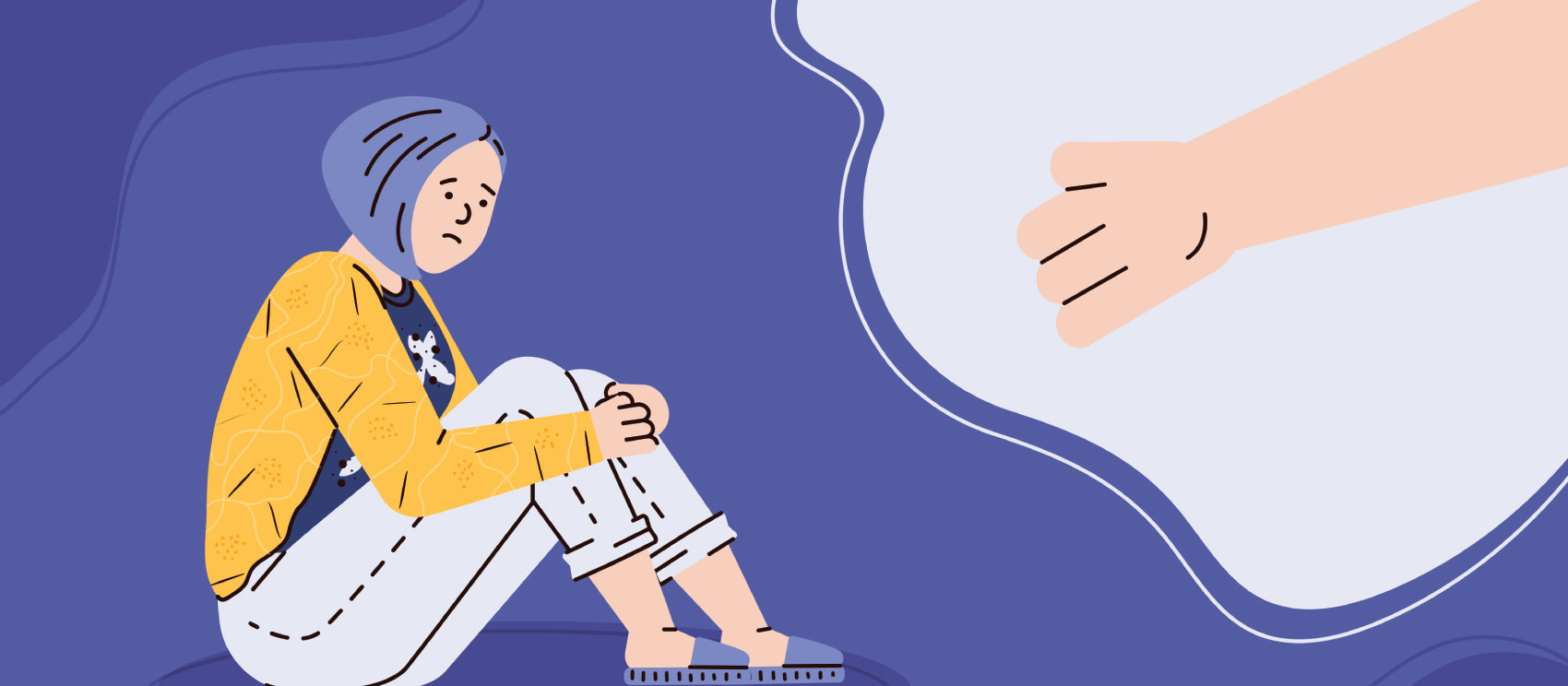In the moment of feeling overwhelming despair and suicidal ideation, it can be difficult to see the sun through the clouds. Unfortunately, too many people are trapped in these mental health cycles of pain and internal struggles… feeling isolated because they don’t know how to find hope.
The shocking truth is that suicide is the second leading cause of death for youth and the 11th leading cause of death overall in the United States. It is a growing epidemic, with an estimated 1.7 million suicide attempts in 2021 (according to the Centers for Disease Control). The good news is that suicide is preventable, and these mental health challenges are treatable, but the patient must get help through professional interventions.
A Safe Haven in a Moment of Crisis
When the danger of self-harm is high, the most important thing a person can do is find a safe haven. The first step of finding professional help isn’t just optional – it’s a lifeline that can be the turning point to a brighter future.
The best form of immersive support for self-harm is through an inpatient care program for suicidal ideation treatment. At First Light Recovery, we offer a safe and structured environment that combines immediate crisis intervention with ongoing monitoring and personalized therapeutic approaches. In our inpatient program, we truly care about the people we are working with.
Our team goes above and beyond to help you not only face these challenges but create a life where you are thriving and happy. Managing symptoms is just a small piece of the puzzle. Our holistic approach gets to the root of the problems, so each person walks away with powerful tools and coping skills. We know that we have succeeded together when you feel a sense of hope for the future.
Crisis Intervention: The Priority and First Step
Immediate safety and stability are the highest priorities when we connect with someone who is experiencing suicidal ideation and self-harm. From the moment the conversation starts, we begin with an immediate assessment to determine the most critical support that can help to address the crisis at hand.
This comprehensive approach looks at everything our professional team needs to determine the best place to start. The initial goal is to identify and address the immediate risks. We evaluate each patient in these ways:
- Current mental state
- History of self-harm
- Suicidal behaviors
- Mental health concerns
- Other contributing underlying factors
In the crisis intervention phase, we understand that each person is unique – which is why there isn’t a cookie-cutter approach. Instead, we tailor the care based on the patient’s specific needs, which might include a variety of treatments such as medication, safety protocols to avoid harm, and therapists who are highly trained in dealing with suicidal ideation and self-harm.
The crisis intervention stage can last anywhere from a few hours to a few days. The comforting environment of our inpatient facilities helps the person to regain a feeling of peace and control. Once the patient is stabilized, then we can dive into the deeper work that sets the stage for long-term recovery.
Why Inpatient Care for Patients with Suicidal Ideation?
At First Light Recovery, we offer 24/7 monitoring and observation, which means that you are never alone. Our trained staff members are always nearby and aware of each patient’s needs. We are ready to offer the support whenever it is needed. 24/7 observation isn’t surveillance or control; it’s the structured support that many people need as an intervention when they are facing a crisis.
Not only does an inpatient program prevent each person from self-harm, but this treatment structure also creates the structure and security that individuals often need to heal. When someone is fighting suicidal thoughts, it is very supportive to know that someone is always there to provide comfort, offer a listening ear, and deliver necessary therapy.
Additionally, we’ve found that this ongoing monitoring is a valuable way for our expert team to understand more about the unique needs of each patient. We can use this information to customize interventions and coping strategies as optimally as possible, while always adjusting the services to cater to the most pressing concerns.
Full-Service Therapeutic Care: Identifying and Addressing Root Causes
The truth is that if a person is suffering from suicidal ideation or self-harm thoughts, these are only symptoms of deeper mental or emotional issues tied to suicidal ideation that need to be addressed. Our team at First Light Recovery uses a variety of evidence-based therapies that promote healing and recovery, giving you the opportunity to rebuild a stronger foundation for the future.
Cognitive Behavioral Therapy (CBT) can be an effective way for patients to identify their negative thought patterns, then change these thoughts into more productive ways of thinking. We also like to use Dialectical Behavior Therapy (DBT), which helps patients learn how to manage self harm triggers, stress, and emotions so they can build healthier relationships.
These therapies can be found in many in-patient and out-patient treatment centers. We are unique by also offering other innovative approaches to help each person find creative outlets to work through their emotions and underlying traumas. For example, two popular therapies include art therapy and equine therapy.
Not only are individual therapy sessions a necessary part of the treatment plan, but we also complement these services with group therapy. Talking to other people on the same journey is a valuable way for individuals to learn from each other, share their experiences, and build a community that can continue to support them beyond the inpatient experience. Research shows that relationships are a key component for recovery when someone is overcoming severe mental illness.
Collaborative Process for Designing a Personalized Care Plan
As we are working with each patient to design a personalized care plan, we like to view this treatment strategy as your roadmap to recovery. It’s a collaborative process: our professional team talks to you about your goals, considers your individual needs, and offers recommendations. We work together to find the ideal solutions that will help you feel better as quickly as possible. At the same time, it’s a high priority to ensure that this recovery is sustainable and long-lasting.
Your recovery roadmap outlines the specific treatments that we will be using, as well as coping strategies you can leverage to stay on track. We also like to outline milestones to achieve along the way, showing the success that you are achieving.
The most important thing to understand about your personalized care plan is that it’s never set in stone. We view this plan as a living, dynamic strategy that can change as you progress. Along the way, we implement regular assessments to determine the effectiveness of the current treatments. Then, there is always room to make adjustments to ensure that the plan is always relevant to your current symptoms.
We love using this dynamic approach because it puts the power into the hands of the patients. As you collaborate throughout the treatment process, you can select the solutions that feel good and resonate with your preferences.
Recovery Beyond Inpatient Care
Inpatient care is an effective solution for navigating a current crisis involving mental health, self-harm, or suicidal ideation. This fast and effective experience is immersive, helping patients overcome the lowest points of their journeys.
Not only will you make it through the crisis safely, but we structure the treatments to make sure that you are equipped to handle anything that might come in the future. In the beginning, the care is reactive to handle the crisis situation. Once the crisis has passed, then we can move into a proactive stage where you learn skills and tools that will prevent relapse and help you enjoy life to the fullest.
Education is an important element in our inpatient care center. As patients gain a better understanding of their mental health challenges, it helps them gain the perspective and confidence they need to manage the ups-and-downs independently in the future.
For this reason, you don’t go from the full support of inpatient care to jumping back into life alone. We provide ongoing help through this transition, so you continue having the support that you need after leaving the care center. Often, the transition plan includes outpatient therapy, support groups, and other resources on an as-needed basis. Putting these structures in place proactively has an undeniable effect to minimize the risk of relapse in the coming months and years.
Compassionate and Comprehensive Care from a Trusted Team
Whether you need help or you are looking for services to help a loved one, First Light Recovery is always just a phone call away. We offer proven treatment plans to help people who are facing suicidal ideation and self-harm. These services include immediate crisis intervention, as well as customized therapies, and a healing, supportive environment.
It’s time to build a brighter future. Contact First Light Recovery at (949) 326-3658 for more information.




